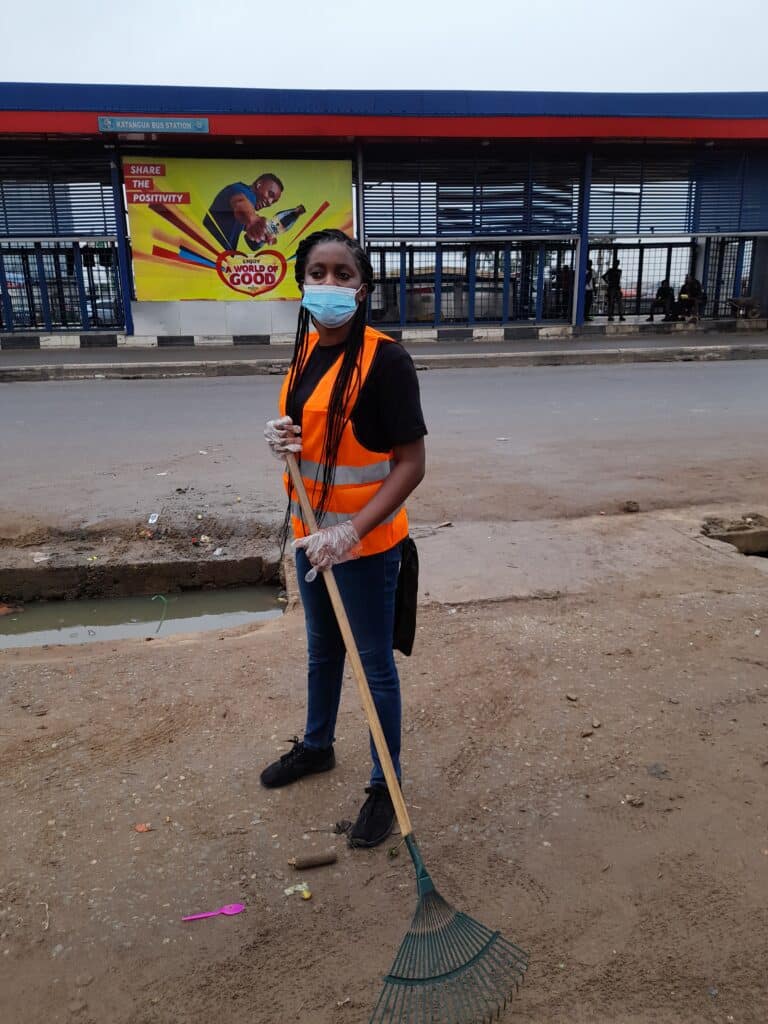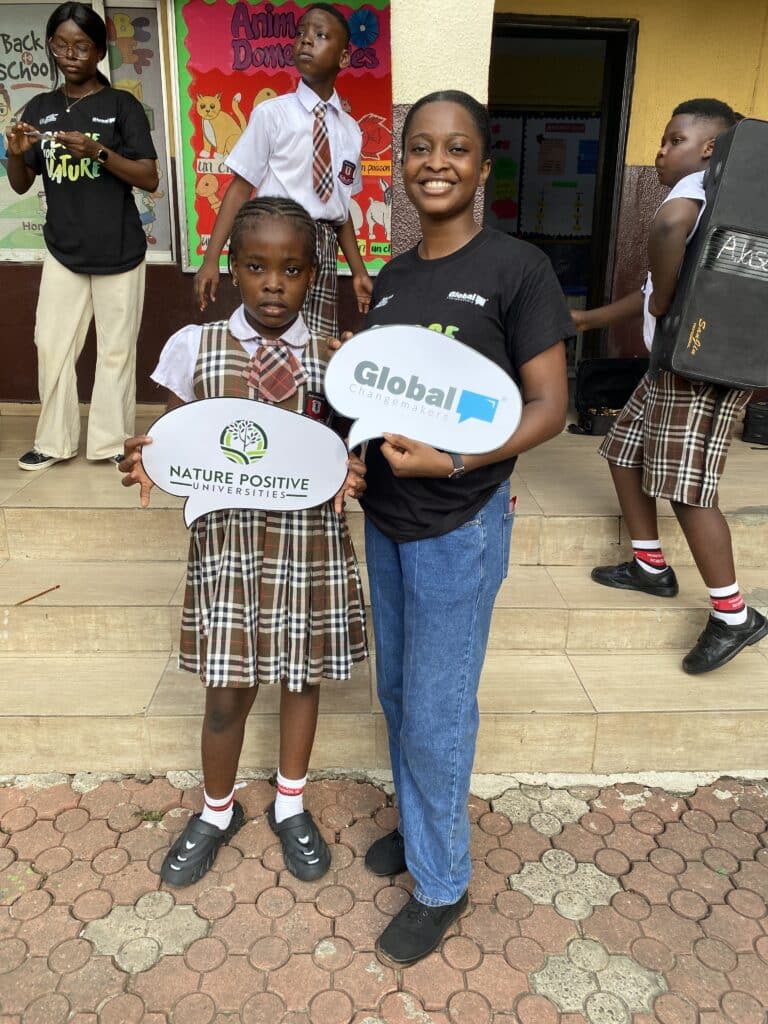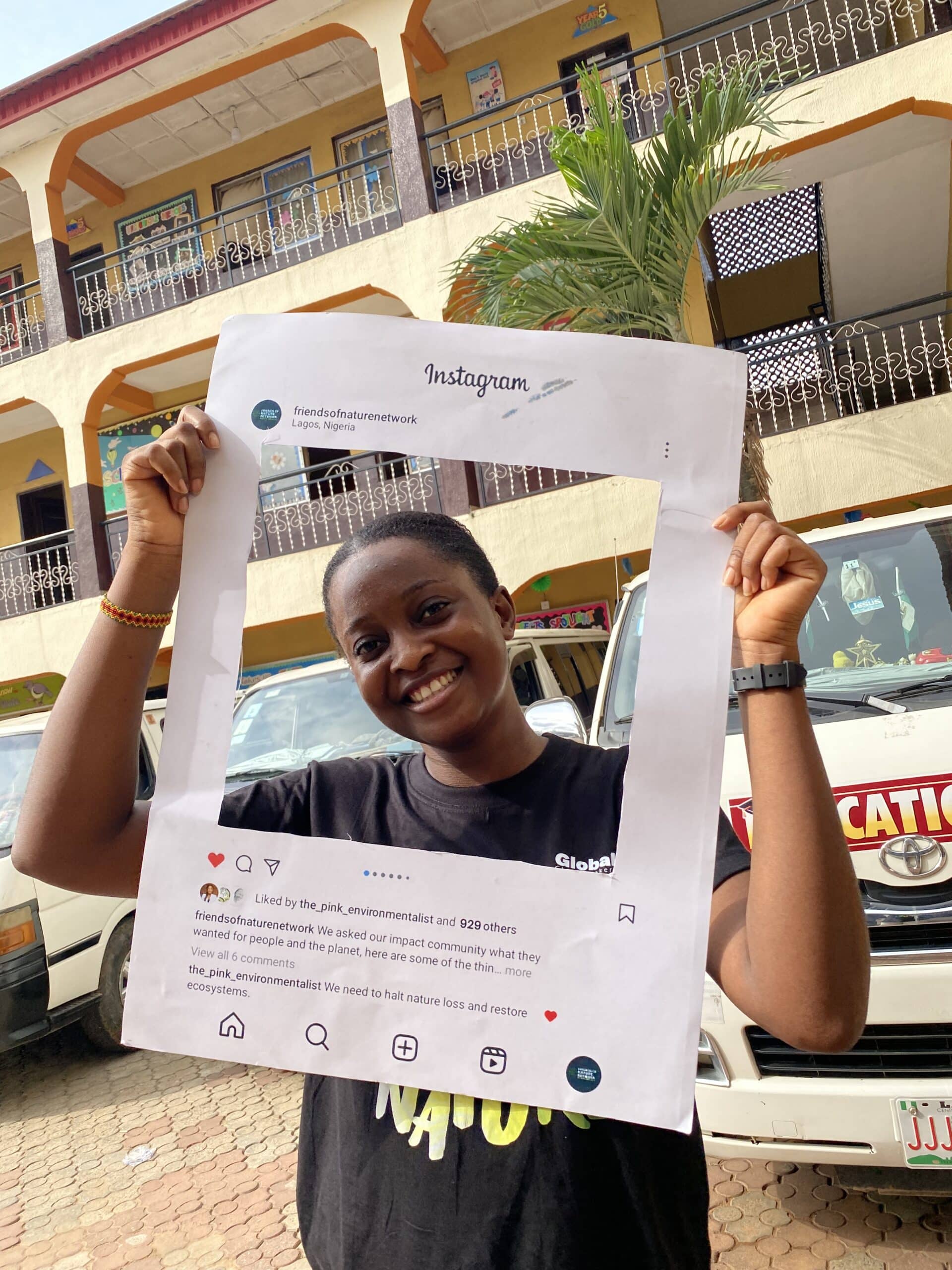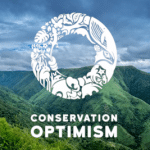Have you ever wondered how conservationists spend their days or what keeps them optimistic about the future of nature? Do they always spend their time in the distant wild, or might they be hidden all around us? Do their roles encompass aspects we never thought of?
“Meet The Optimists” is a monthly blog series by Conservation Optimism which introduces conservationists working in different fields and contexts to our readers. We discuss their journeys into conservation, typical daily activities and reasons for hope.
Read on for the inside story on different careers and fresh approaches to conservation!
In the March 2024 blog of Conservation Optimism’s “Meet The Optimists” series, Favour Eragbie talks about her life as an environmentalist and her work promoting environmental sustainability.

Favour Eragbie is an environmentalist from Nigeria who is passionate about using climate education to address issues that drive climate change. She advocates for nature conservation through education and storytelling.
In 2021, she founded Friends of Nature Network – a youth-led organisation uniting students of higher institutions around the goal of promoting environmental sustainability and restoring ecosystems in university campuses and communities. The organisation is currently in operation in over 25 universities across Africa.
She is a Student Ambassador Coordinator at Nature Positive Universities, an initiative founded by the University of Oxford and the United Nations Environment Programme, working to help universities lead their students, staff and communities on a nature positive journey and taking proactive actions to restore nature. In 2022, she emerged as the only student on the winning team of the World Bank Utility of the Future Youth Challenge.
In 2023, she was named a 30 under 30 changemaker by Opportunity Desk.
Can you trace the origins of your interest in conservation and what led to your current work?
My interest in conservation began when I became more interested in seeking answers to issues in my community that contributed to climate change which no one could provide a succinct response to. I became more curious to find out the root cause and the genesis of changes in weather patterns – it prevented me from enjoying my favourite fruit, the cherry (Chrysophyllum albidum)!
I asked individuals and colleagues – no one seemed to point me in the right direction, it was all a blame game with no one ready to take responsibility. As a university student, I decided to change mindsets amongst young students on what we can do to protect nature and call for action responsibly.
What does a typical day of work look like for you?
A typical day is usually busy, it involves staying in touch with my team, executing a project in a community, reading and catching up on information on climate action from across the world. I also plan initiatives to advance my vision and listen to music and during periods of the year where we execute projects, I spend hours, sometimes up to three hours in schools or communities educating young people about climate change and interacting with older members of the community learning about indigenous knowledge and how it can promote climate action. Because my role is voluntary, I get to catch some healthy breaks.

What is your favourite and least favourite aspect about your role?
The most favourite aspect of my role is executing community based initiatives, whether clean ups or climate education. It gives me so much hope that there’s a lot of change we can do and also a very large percentage of individuals who are willing and ready to embark on this nature positive journey with me.
My least favourite aspect is reading news on the climate crisis (seeing how world leaders fold up their hands and watch our planet heat up), it’s sometimes depressing and can build up anxiety. I have been able to cope by staying updated with climate positive news from blogs and pages I follow online, talk about what I think to others who are more experienced than I am and stay with so much enthusiasm seeing the impact young people make everyday.
As a conservationist, what makes you hopeful about the future?
What makes me hopeful about the future is seeing the progress young people are currently making across the world to create a sustainable future. We can turn the tide on pollution and restore nature, protect ecosystems and live in harmony with nature.
What helps you stay positive day-to-day?
I stay positive by filtering the kind of information I read or listen to about the climate crisis, I also have friends that I always talk with when I have a burden, we can prefer to jump on calls that can last for hours and run consecutive on some days, the conservation gets deeper, we analyse and look into what climate trend and disparity and also propose solutions we think is best, it always ends up been so inspired to continue to drive positive change in the world. I always engage in positive meditation, just shut up myself from the noise and let my mind wander and come back recharged.

Could you share a story about a formative moment in your conservation career?
One moment I cherish so much is my first clean up exercise at a local market. I was so nervous to bring this event to life, we did execute the project, we had lots of inspiring and emotional feedback from members of the community during and after the event. We got lots of wishes and advice and even cash! A couple of people did not want us to clean up. They felt we looked too good for that kind of work. I think that is what change means to me, as long as I am able to reach the community, my status should not measure what I do but rather be a yardstick to help others.
Any advice for someone interested in pursuing your field of work?
There is so much you can do, I think the worst answer you can get is No – it’s a two letter word and shouldn’t stick with you for long. You have to start somewhere and begin taking little steps, little steps make a mile of a successful journey. Have friends who support your work, seek advice from those who are ahead of you, and always take breaks. I am rooting for you.


